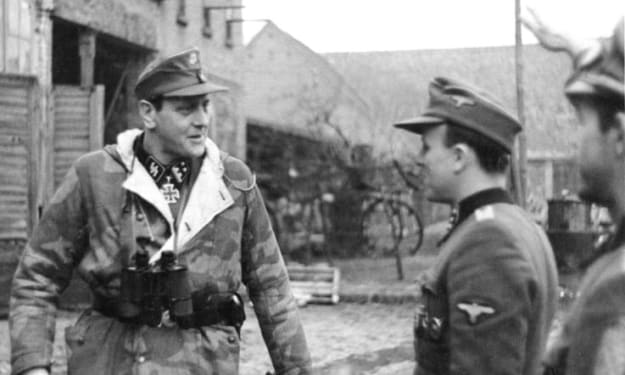Rugby's Global Impact: Tales of Triumph and Unity on the World Cup Stage
Triumph and Unity on the World Cup Stage

Introduction
Rugby, often described as a game played in heaven, possesses a unique power to unite nations across the globe. The Rugby World Cup is the pinnacle of this unity, a quadrennial celebration of sportsmanship, camaraderie, and the raw emotion that defines this remarkable game. Beyond the field, the World Cup serves as a powerful platform for countries, both big and small, to showcase their talent on an international stage. In the following 1000 words, we delve into the emotional stories that underline rugby's global impact during the Rugby World Cup.
1. The Unbreakable Spirit of Namibia
In the vast landscapes of Namibia, rugby isn't just a sport; it's a way of life. The Namibian national rugby team, often seen as the underdogs, has consistently demonstrated unwavering determination on the world stage. Their journey to the Rugby World Cup is a testament to the resilience of the human spirit.
For a nation with a population of just over two million, competing against rugby giants is an immense challenge. However, each World Cup, Namibia steps onto the field with hearts full of hope and national pride. Their emotional journey, marked by the unbreakable spirit of players who balance the sport with their day-to-day lives, resonates with fans worldwide.
In 2015, Namibia faced New Zealand, the reigning champions, in the World Cup. Though the odds were overwhelmingly against them, Namibian players showcased an indomitable spirit, earning respect and admiration from fans worldwide. Their courage, even in the face of daunting challenges, encapsulates rugby's power to inspire and unite.
2. Japan's Historic Triumph
The 2019 Rugby World Cup in Japan was a transformative moment for the sport. Japan, a nation known more for its technological prowess than rugby, defied all expectations. The Brave Blossoms, as the Japanese national team is known, not only hosted the tournament but also achieved remarkable success on the field.
The emotional journey of Japan, led by their charismatic captain Michael Leitch, touched the hearts of millions. The defining moment came when Japan beat Ireland, a rugby powerhouse, in a game that will forever be etched in rugby folklore. The scenes of fans in Tokyo celebrating the victory and singing the Japanese anthem with tears of pride and joy captured the essence of the sport's global impact.
Japan's success was not just about winning games; it was about breaking barriers and inspiring a new generation of rugby players. The sight of Japanese fans, young and old, cheering passionately for their team, showcased how rugby can bridge cultural gaps and create a sense of unity that transcends borders.
3. The Fijian Flair and Passion
Fiji, a small island nation in the South Pacific, has long been a rugby powerhouse. Their unique brand of running rugby, characterized by flair, offloads, and breathtaking tries, has won them fans worldwide. But beyond their dazzling performances on the field, it's the passion and emotion that Fijian players bring to the Rugby World Cup that leave a lasting impact.
For Fijian players, representing their country is more than just a game; it's a chance to make their nation proud and lift the spirits of their people. The emotional journey of Fijian players, many of whom come from humble backgrounds, is a story of triumph against adversity.
In the 2007 Rugby World Cup, Fiji achieved a historic victory over Wales, signaling their arrival on the world stage. The scenes of jubilation in Fiji, with celebrations that echoed across the islands, showcased the profound emotional connection between rugby and the nation's identity.
4. The South African Resurgence
In South Africa, rugby is more than just a sport; it's a symbol of unity and hope. The Rainbow Nation's journey to Rugby World Cup glory in 1995 and 2007 became a symbol of reconciliation and healing after the apartheid era.
In 1995, when South Africa hosted the World Cup, the Springboks, as the national team is known, were led by Nelson Mandela. The image of Mandela wearing a Springbok jersey and presenting the trophy to Francois Pienaar after their victory remains an iconic moment in sports history. It was a powerful symbol of unity, transcending racial and political divides, and bringing a nation together in celebration.
In 2007, when South Africa won the World Cup again, it was a source of immense pride and emotion. The Springboks, with players like Bryan Habana and John Smit, exemplified the spirit of resilience and determination that characterizes South Africa's history.
5. The Pacific Islands' Passionate Legacy
The Pacific Islands—Tonga, Samoa, and Fiji—have a rich rugby heritage. Despite their relatively small populations and limited resources, they consistently produce some of the world's most talented and passionate rugby players. The emotional stories of these island nations highlight the deep connection between rugby and their culture.
Players from the Pacific Islands often face challenges that players from larger rugby nations do not. They play to honor their families, communities, and the traditions of their homelands. Their performances on the world stage reflect their deep emotional ties to the sport.
In 2011, during a game between Tonga and France, the world witnessed the passion of Tongan fans, who performed their traditional Sipi Tau (war dance) with fervor. The raw emotion displayed by the players and fans alike was a testament to rugby's ability to inspire and connect people across the globe.
Conclusion
Rugby's global impact is not merely about the games played on the field; it's about the emotions, stories, and connections it creates. The Rugby World Cup serves as a remarkable platform for countries to showcase their talent, and in doing so, it brings people together in celebration of the human spirit. Whether it's the underdog Namibians, the triumphant Japanese, the passionate Fijians, the unifying South Africans, or the resilient Pacific Islanders, these emotional stories remind us that rugby is more than a sport—it's a source of inspiration, unity, and hope for nations worldwide.
About the Creator
Enjoyed the story? Support the Creator.
Subscribe for free to receive all their stories in your feed. You could also pledge your support or give them a one-off tip, letting them know you appreciate their work.





Comments
There are no comments for this story
Be the first to respond and start the conversation.